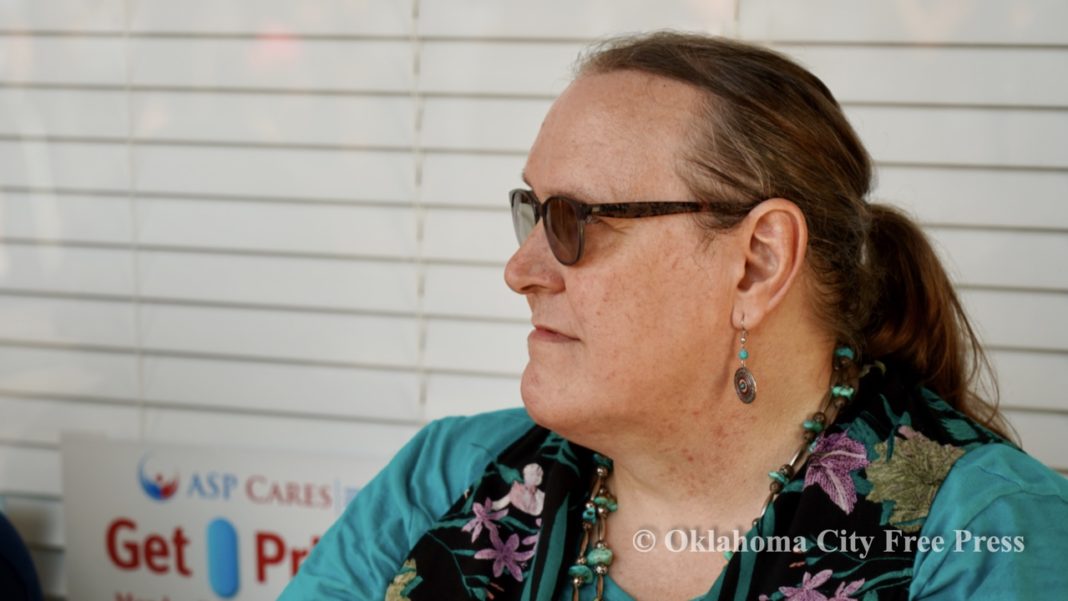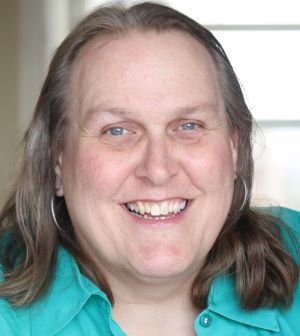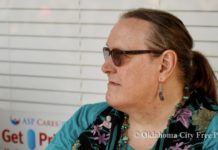Last Updated on January 5, 2024, 12:56 AM | Published: October 1, 2021
Paula Sophia Schonauer, LCSW, continues a serial memoir. If you haven’t read the earlier parts of this series, follow the links at the bottom of this page.
Book Two addresses my wayward journey to manhood as I tried to negotiate a path to manhood prescribed by men who had no power except for the power they thought they had over women. As a boy who had wanted to be a girl, my young manhood was difficult, full of misguided attempts at trying to balance power with sentimentality, self-hate with seeking love from a woman, and a desire to die a hero.
In the 1987 classic movie, Moonstruck, Rose Castorini (Olympia Dukakis) suspects her husband is having an affair. Instead of being angry, she is perplexed. At one point, she asks Johnny Cammerari (Danny Aiello) why a man would need more than one woman.
“I don’t know. Maybe because he fears death?” Johnny replies.
“That’s it. That’s the reason. Thank you for answering my question!” Rose declares as if she had known the answer all along.
According to Leonard Shlain in his book Sex, Time, and Power: How Women’s Sexuality Shaped Human Evolution, women were the first humans to become aware of time, and through the understanding of time, they were the first to become aware of death. He hypothesizes that big-brained homosapiens and the narrow female pelvis created a crisis that altered women’s hormonal cycles, which tended to synchronize with the moon cycle prior to the introduction of artificial lighting at night. These cycles created an awareness of time and the changes that occur through time, thus an awareness of aging and human mortality.
Women, imbued with this knowledge, understood their sexuality and sought to control it through the selection of mates who would assure survival of the group, the tribe, the species. This control enabled women to inform men of their own mortality, but where women were not as disturbed by death because they were able to give birth, men experienced a crisis that seems to go unresolved to this day.
Shlain speculated that the emergence of human representational art between 40 to 50 thousand years ago is a symptom of the crisis of mortality, an attempt to create something lasting, a culture passed down from generation to generation. Perhaps the first female-centered religions developed during these times, ushering in an era that lasted tens of thousands of years. These religions expressed awe at the life-giving female body and, in turn, embraced feminine deities.
According to archeologist Marija Gimbutus, Europe, North Africa, and the Middle East had been dominated by goddess religions before the onset of patriarchal cultures beginning 12 thousand years ago. She cites as evidence the proliferation of female sculptures found all over these regions, a pristine example of which is known as the Venus of Willendorf, a figurine estimated to be 25 thousand years old.
Curiously, the emergence of patriarchal cultures began at about the same time as the discovery of agriculture, perhaps an awareness drawn from the resemblance of the female vulva to plowed earth. Men realized the need for a seed and became aware of their own contribution to human reproduction. At this point, they sought ways to control female sexuality, creating systems that valued virginity, marriage, and male lineage. Men had found a way to tap into immortality by ensuring their “seeds” that produced heirs.
Unfortunately, these systems could be disrupted through the taking of women by force and rape. A common attribute of warfare has been the rape of women and girls as a way to add injury to the insult of defeating male adversaries in battle, a method of deliberate erasure, and a demonstration of power. Lineal erasure has been portrayed in contemporary cinema in the film Braveheart (1995) when William Wallace (Mel Gibson) has a love affair with Princess Isabella, the wife of Crown Prince Edward, the son of King Edward I (Longshanks) and successor to the throne. Princess Isabella becomes pregnant, and when Longshanks is dying and unable to speak, she whispers in his ear that his line will die with him, that his son is weak and will be deposed, and that she is carrying the child of William Wallace.
Historically, there is no evidence that Princess Isabella ever met William Wallace. In fact, she never met Longshanks before he died. So, why portray lineal erasure at all, unless Mel Gibson was tapping into a fear that men still experience, a fear of death to be sure, but also a fear of irrelevance through the failure to establish a lineage. To establish a lineage in a patriarchal society, men must rely upon women to be procreative, loyal, and sexually pure. Women who fall outside of this framework are considered fallen, unclean, and unsuitable as wives. They are labeled sluts and subject to derision, abuse, and extermination.
At the hinge point of history when matriarchal cultures fell to patriarchal cultures, mythologies often portray women as harbingers of death. Of course, there is the Garden of Eden in Genesis when Eve eats fruit from the Tree of the Knowledge of Good and Evil and invites Adam to eat also. She gives Adam a taste of death. In other stories, Lilith, the first wife of Adam who had been co-created with him, is too independent and does not obey him. She finds herself banished from the Garden of Eden, to roam the earth, becoming a demon responsible for sucking the blood of unborn children, causing miscarriages and stillbirths.
In other traditions, the love of a goddess brings death to the mortal men they desire. In the Epic of Gilgamesh, the goddess Ishtar falls in love with Gilgamesh, but he rejects her, prompting her to send the Bull of Heaven to slay Gilgamesh and his wild twin Enkidu. The Bull of Heaven mortally wounds Enkidu, and upon his death, Gilgamesh experiences an existential crisis, embarking on a quest for immortality. Of course, he fails.
These portrayals upend the life-affirming qualities of women in matriarchal cultures, placing the life qualities into the realm of men who cast themselves as husbands, heroes, and kings, progenerators and protectors of human life and community. Thus ascribed with power, they lord it over women, demanding their virtue even as they gratify themselves with sexual pleasure. They regard women with suspicion and fear, quick to accuse them of seduction and black magic.
Ernest Becker wrote The Denial of Death (1973), which won the Pulitzer Prize in 1974. In it he argues, “the basic motivation for human behavior is our biological need to control our basic anxiety, to deny the terror of death.” The book is very male-centric in its approach, using examples of men who try to establish immortality through acts of heroism, lineal legacies, or through some kind of lasting work, that creates meaning beyond a lifetime.
Arguably, men who do not have the means, education, or talent to create a work of art, literature, or music might try to establish their names through acts of heroism in war, athletic competition, economic success, or through humanitarian intervention – sometimes achieving immortal legacies through martyrdom or self-sacrifice. If they lack courage, they may be driven to sexual aggression, gaining notoriety through the conquest and control of women.
As might be evident in our current age, we are sorely lacking in heroes, and many whom we have designated heroes have proven fallible, weak, and even predatory. It seems too many men chose dark exploits to make their claims for immortal status. Not least among them, mass shooters, some of whom found motivation for their murderous rampages because women had rejected them. Still others express fear of a “feminizing society” that is systematically diminishing and devaluing male power. They want to reestablish manly dominance, reasserting themselves as warriors and kings if nowhere else but in their own homes.
My father was not an artist, musician, or writer. Though he served in the Navy, he did not emerge from military service as an acknowledged hero. He was not an athlete, an economic success, nor a humanitarian. He was, however, a man filled with deep resentment toward women, seeing them as vessels for his own gratitude, and he saw me as lacking in sexual prowess, expressing concern for my lack of aggression, my lack of interest in pursuing women as sexual objects. He devised many lectures and tests about how I should approach women, how I should seek opportunities for sexual gratification with women, and how I should be a man by dominating women.
My father never acknowledged a fear of death, but he did express fear about losing vitality, boasting about how long he could sustain an erection, and he was quick to criticize other men who did not express dominance over women or who seemed to have other preoccupations besides sexual gratification.
After I finally established my ability to engage in violence in Donut’s backyard that day in 1976, my father engaged me in a campaign to eradicate my queerness and to establish me as a sexually dominant man. As I matured, I noticed the pressure from other boys and men to be sexually aggressive and who tried to gauge my sexuality through various litmus tests. I am not sure my experience of adolescence and young manhood was universal, but I do expect it is common, even in our “Me Too” era.
Here are previous segments:
- Manhood, from the inside out — Memoir and Mythology
- Part 2 — Cubby Hole
- Part 3 — Magic Carpet Cocoons
- Part 4 — Snips and Snails and Puppy-Dogs’ Tails
- Part 5 — Mirror
- Part 6 – Deep Water
- Part 7 – Limbo
- Part 8 – Dissociation
- Part 9 – Shame
- Part 10 – Judgement Day
- Part 11 – Inferno
- Part 12 – Haunted
- Part 13 – Did I say that?
- Part 14 – The end times
- Part 15 – Alone again (naturally)
- Part 16 – Welcome to Grey Town
- Part 17 — Stigma
- Part 18 — Turning the other cheek
- Part 19 — Malingering
- Part 20 — Rorschach
- Part 21 – Soft hands
- Part 22 — How real men talk
- Part 23 — Crash landing
- Part 24 — To make a fist
- Part 25 — To hurt another
- Part 26 — Showdown
- Part 27 — Savage aggression
- Part 28 – Heroic
Guest Columnist Paula Sophia is a licensed clinical social worker in Oklahoma City and a former Oklahoma City Police Officer.








